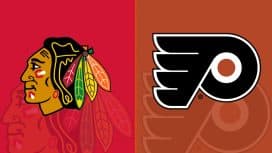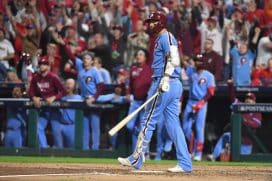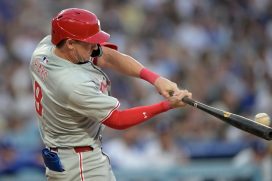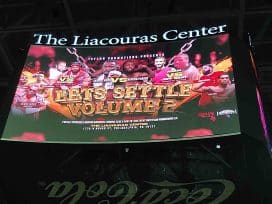Phillies
2017 Phillies Wall of Fame Breakdown – Scott Rolen
By: Matt Alberston, Historical Columnist
It took six years for Phillies fans to settle their differences with their former superstar third baseman. Dick Allen was welcomed back with open arms in 1975. The 1964 Rookie of the Year was a critical component to what fans thought was the next great Phillies team after the 1964 season but his time in Philadelphia soured amid racial unrest and the fan's and media's misunderstanding of the great slugger. Allen demanded that the Phillies trade him in the late 1960s. Demanding a trade out of Philadelphia is the fast track to booville for diehard Phillies fans – indeed, it's the unforgivable sin.
But in 1975, the Phillies added Allen as a veteran bat to a young and incredibly talented team, the core of which went on to appear in five National League Championship Series and two World Series, winning the title in 1980. The fans buried the hatchet with Allen after years of reflection, plus, the club began winning once he was welcomed back into the fold. As we all know, "winning cures everything."
In some respects, Dick Allen's narrative parallels Scott Rolen's. Rolen was drafted in the 1993 amateur draft out of high school. That year, the club made an improbable run to the World Series which ended in bitter defeat. Rolen must have liked what he saw; a competitive club stocked with stars John Kruk, Curt Schilling, and Lenny Dykstra. However, just like the 1964 Phillies, the 1993 Phillies were a shooting star that flared out once the season finished. What followed were arguably some of the worst years in club history since the end of World War II.
Rolen debuted in 1996 and dazzled fans and the media alike with his acrobatic plays at third base and his combination of power and base running savvy. He was a true five-tool player. In his first full season in 1997, he won the National League Rookie of the Year award in a class that included Livan Hernandez, Andruw Jones, and Vladimir Guerrero – all from NL East clubs. More importantly, Mike Liberthal and Rico Brogna made their full season debuts. In the ensuing seasons, Doug Glanville and Bobby Abreu were acquired via trades and inserted into an improving Phillies lineup.
But in 2000, injuries and and loses piled up and the club began to sell off players as they finished the season with 97 losses in a year that began with visions of a winning record for the first time since 1993. It sent a message to Rolen – right or wrong – that the Phillies weren't willing to spend patience or money to build a winner.
In 2001, Rolen rejected a 10-year, $140 million extension, questioning the club's commitment to winning and demanded a trade. It didn't help that his relationship with Wall of Fame player and then manager Larry Bowa was poor. Like Dick Allen 30 years prior, Rolen committed the cardinal sin for Phillies fans, demanding a trade publicly.
He was eventually traded to the St. Louis Cardinals midway through the 2002 season. To add insult to injury, Rolen labeled his new home as "baseball heaven." He was a component to the Cardinals resurgence in the early 2000s, earning a World Series ring with the team in 2006. In 2014 at the age of 39 and unsigned, Rolen appeared at the Phillies spring training complex in Clearwater. According to a CSN article that year, it seemed that he had moved on from the rocky relationship he had with the club in the early 2000s stating: "What happened happened…[e]verything is good now. I kind of feel like we’re all in the place we should be."
Rolen spent seven seasons in Phillies pinstripes, the most of any team during his 17-year career. He hit 150 home runs with 559 RBI and stole 71 bases, compiling a .282/.373/.504 slash line, with an OPS of .877 and a 29.2 WAR. In addition to his 1997 Rookie of the Year award, he earned four Gold Gloves, one silver slugger, and made one All-Star appearance in his time with the Phillies. His only drawback was that he was often injured and only played in 150+ games in three of his seven seasons.
I think Rolen deserves a shot at induction into the Phillies Wall of Fame. Nobody questioned his ability on the diamond but what will hold fans from voting him onto the Wall were his attitude and comments he made at the end of his Phillies tenure. He was one of the few bright spots during some of the darkest years in club history. It's not a popular opinion, but it's been 15 years since Rolen was traded to St. Louis – it's time we as a fanbase bury the hatchet and buck the stereotype that Phillies fans are an embittered fanbase. He won't be inducted onto the Wall this year, but Rolen should be given a serious look over the course of the next few years.





